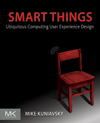Last fall I wrote about supply-driven development models dominating what I understood to be at the core of Japanese consumer electronics. Today, CNET writes about (and Slashdot blogs about) Sony's trouble making good software as the core problem behind their lack of success with their recent consumer products. They discuss how siloed the software development is and how the culture pendulums from centrally-controlled to distributed software products, and how they've hired an Apple exec to oversee their new centralization, but I think that somewhat misses the mark: the problem is not necessarily the central control or its lack. The problem is that whether or not that control is asserted, it's done in the name of company identity and techical achievement, rather than end-user behavior, or competitive demand. This is classic supply-driven thinking and the core of the problem in an engineering-driven culture. It's going to take Sony a long time to explain to its people that the important part is not the coolness of the technology, but what it does. Thinking in those terms is why they keep first isolating themselves to develop the cool tech, and then swinging the other way to try and unify the individually-isolated technology. If there isn't a user-guided vision at the center of that unification, it's going to fail as quickly as the islands of engineering utopias. An archipelago of islands, each with a noncompetitive ecology, is no more competitive than the individual islands. Only when exposed to the environmental pressures of user needs do the genuinely valuable ideas survive.
Good luck to Sony in changing that culture. You could do worse than start by hiring an army of usability testing people.
Or at least that's the theory, as of today. ;-)



